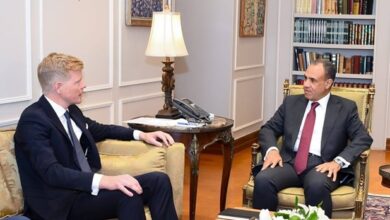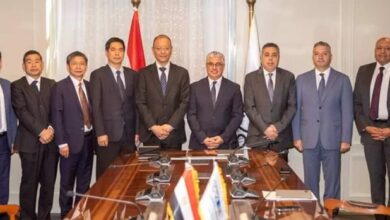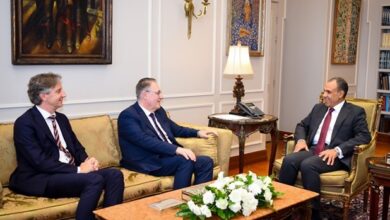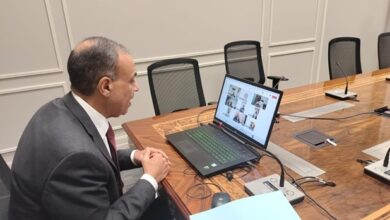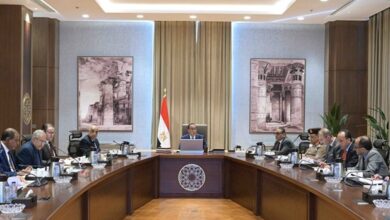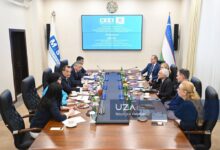Planning Minister: Decline in Financial Space for Energy Investments in Global South Hinders Progress toward Achieving UN SDGs
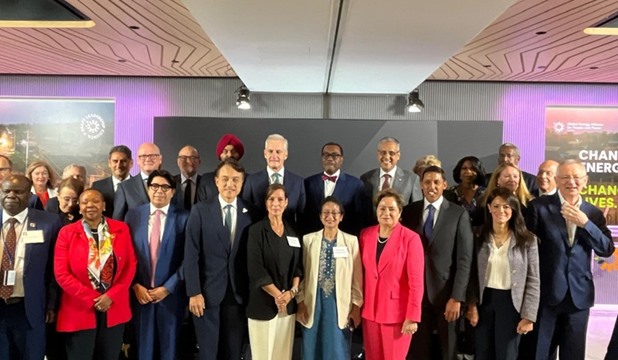
H.E. Dr. Rania A. Al-Mashat, Minister of Planning, Economic Development, and International Cooperation, participated in the meeting of the Global Energy Alliance for People and the Planet (GEAPP), held during the 79th session of the United Nations General Assembly and the “Summit for the Future” in New York.
The meeting was attended by Mr. Ajay Banga, President of the World Bank Group, Mr. Akinwumi Adesina, President of the African Development Bank, Mr. Rajiv Shah, President of the Rockefeller Foundation, Mr. Andrew Steer, President and CEO of the Bezos Earth Fund, and other coalition members from international institutions, think tanks, government representatives, and philanthropic organizations.
The meeting aimed to identify actions that the GEAPP leadership council members must take to accelerate the achievement of the SDG 7: Clean and Affordable Energy, by committing the World Bank and the African Development Bank to provide electricity to 300 million people in Africa by 2030, as well as to outline the necessary mechanisms to expand energy access in regions beyond Africa.
H.E. Minister Al-Mashat highlighted the disparities in energy transition efforts and their potential to deepen existing economic gaps. She noted that while the world is on track to increase investments in renewable energy and electricity networks, some regions may lag due to significant investment and international support deficits.
H.E. Dr. Al-Mashat stated that the Global South, which constitutes 65% of the world’s population, receives less than 15% of investments in clean energy. This situation complicates the attraction of the necessary funding for an efficient transition to clean energy.
H.E. Minister Al-Mashat pointed out that in Sub-Saharan Africa, annual investments in renewable energy and network expansion reached approximately $20 billion in 2023, which is only one-fifth of the required annual value of around $100 billion from 2024 to 2030.
This shortfall is largely due to investments being concentrated in advanced economies and China, creating an investment gap that hinders growth in developing countries.
H.E. Dr. Al-Mashat reviewed national efforts towards the transition to clean energy through various measures, including structural reforms that encourage private investments and the launch of the national platform for the “NWFE” program, aimed at supporting energy transition efforts in Egypt under the umbrella of the National Climate Change Strategy 2050.
H.E. Minister Al-Mashat further emphasized that countries in the Global South are already facing an increasing investment gap in sustainable energy, making it challenging for developing nations to transition to clean energy technologies. She indicated that annual investments in clean energy in developing countries and emerging markets need to increase to $1 trillion per year (seven times the current investments) to achieve low-emission development and climate resilience by 2050.
This underscores the urgent need to accelerate actions towards the Mission 300 initiative of the World Bank and African Development Bank.It is worth noting that the Mission 300 initiative was adopted by the GEAPP leadership council in April 2024.
The initiative aims to provide electricity to 300 million people in Africa by 2030, addressing the needs of more than half of Africa’s population who live without reliable electricity access. This initiative is based on a public funding commitment of $30 billion from the World Bank and African Development Bank, with the potential for an additional $10 billion from international financial institutions.
The initiative is expected to drive developmental progress across sectors such as agriculture, healthcare, education, and business throughout the continent.
Minister of International Co-operation


